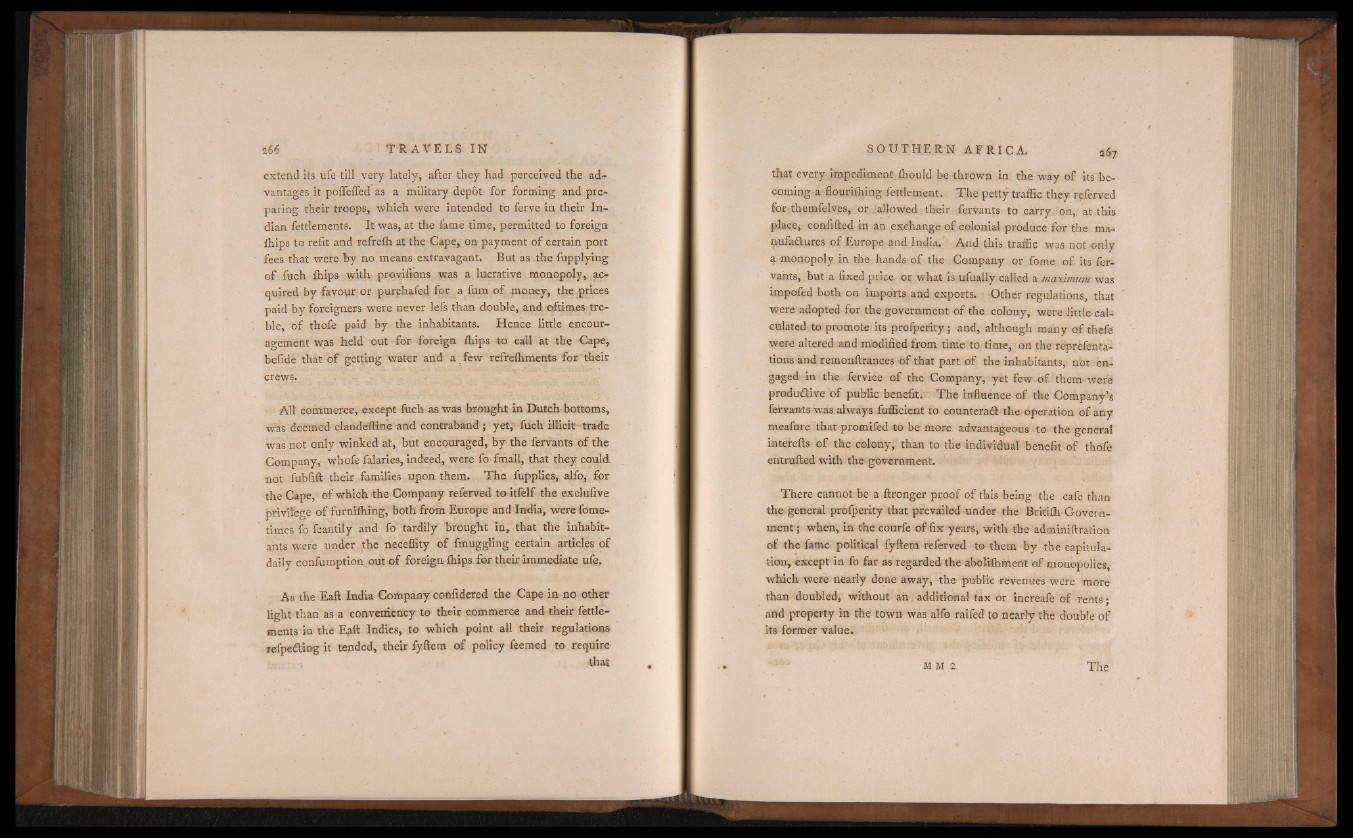
extend its ufe till very lately, after they had perceived the advantages
it poflefled as a military dépôt for forming and preparing
their troops, which were intended to ferve in their Indian
fettlements. It was, at the famé time, permitted to foreign
ihips to refit and refrefh at the Cape, on payment of certain port
fees that were by no means extravagant. But as the fupplying
of fuch ihips with provifions was a lucrative monopoly, acquired
by favour or purchafed for a fum of money, the prices
paid by foreigners were never lefs than double, and oftimes treble,
of thofe paid by the inhabitants. Hence little encouragement
was held out for foreign ihips to call at the Cape,
befide that of getting'water and a few refreihments for their
crews.
All commerce, except fuch as was brought in Dutch bottoms,
was deemed clandeffine and contraband; yet, fuch illicit trade
was not only winked at, but encouraged, by the fervants of the
Company, whofe falaries, Indeed, were fo final!, that they could
not fubfift their families upon them. The fupplies, alfo, for
the Cape, of which the Company referved to itfelf the exclufive
privilege of fumiihing, both from Europe and India, werefome-
times fo fcantily and fo tardily brought in, that the inhabitants
were under the neceffity of fmuggling certain articles of
daily confumption out of foreign ihips for their immediate ufe.
As the Eaft India Company confidered the Cape in no other
light than as a convemency to their commerce and their fettlements
in the Ejift Indies, to which point all their regulations
refpeding it tended, their fyftem of policy feemed to require
that
that every impediment ihould be thrown in the way of its becoming
a flouriihing fettlement. The petty traffic they referved
for themfelves, or allowed their fervants to carry on, at this
place, confifted in an exchange of colonial produce for the ma-
nufadures of Europe and India. And this traffic was not only
a monopoly in the hands of the Company or fome of its fervants,
but a fixed price or what is ufually called a maximum was
impofed both on imports and exports. Other regulations, that
were adopted for the government of the colony, were little calculated
to promote its profperity; and, although many of thefe
were altered and modified from time to time, on the reprefenta-
tions and remonftrances of that part of the inhabitants, not engaged
in the fervice of the Company, yet few of them were
productive of public benefit. The influence of the Company’s
fervants was always fufficient to counterad the operation of any
meafure that promifed to be more advantageous to the general
interefts of the colony, than to the individual benefit of thofe
entrufted with the government.
There cannot be a ftronger proof of this being the cafe than
the general profperity that prevailed under the Britiih Government
; when, in the courfe of fix years, with the adminiftration
of the fame political fyftem referved to them by the capitulation,
except in fo far as regarded the abolishment of monopolies,
which were nearly done away, the public revenues were more
than doubled, without an additional taxor increafe of rents;
and property in the town was alfo raifed to nearly the double of
its former value.
M M 2 The